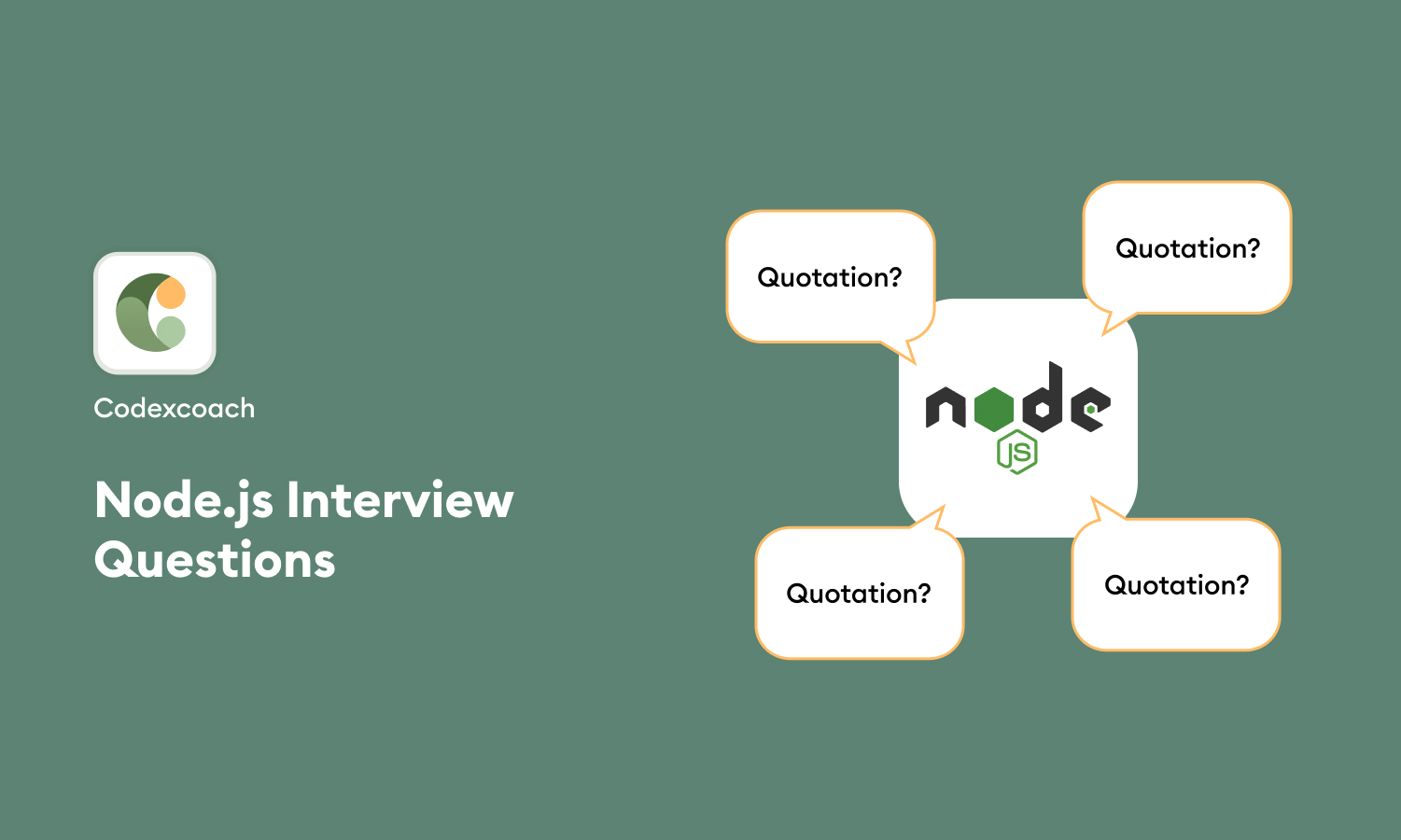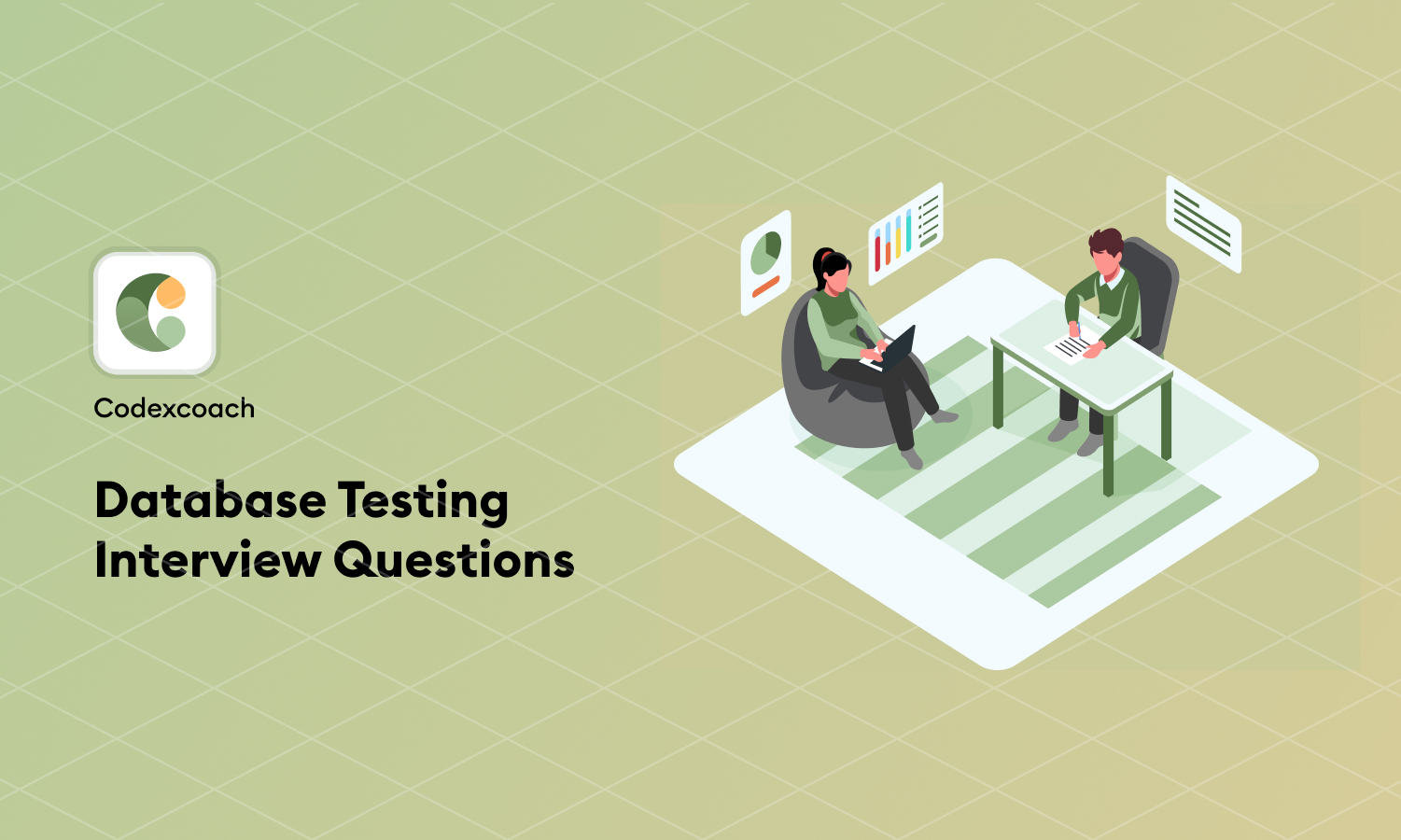To make sure you’re ready to impress, we’ve put together a list of common Node.js interview questions. They’ll guide you through what you need to know and help you show off your coding chops to potential employers. Get ready to nail that interview and show them you’ve got what it takes to code with the best!
Questions About Node.js Fundamentals
1. What is Node.js?
Node.js is a runtime environment for executing JavaScript code server-side. It’s built on the V8 JavaScript engine and is mainly used for building scalable network applications.
2. What is the event loop in Node.js?
The event loop is the mechanism that allows Node.js to perform non-blocking I/O operations. It continuously checks the event queue and executes the callbacks associated with each event, allowing for asynchronous programming.
3. What is NPM?
NPM stands for Node Package Manager. It is a package manager for JavaScript and the default package manager for Node.js. It helps in package installation, version management, and dependency management.
4. What are the differences between let, const, and var?
let allows you to declare block-scoped variables, const declares variables whose values cannot be reassigned, and var declares function-scoped or globally-scoped variables.
5. Explain how require() works in Node.js.
The require() function is used to import modules in Node.js. When called, it returns the export object from the specified module, making its functions and properties available for use.
Advanced Node js Interview Questions
6. What are Promises?
Promises are a way to handle asynchronous operations in JavaScript. They have three states: pending, fulfilled, and rejected. Promises provide methods like .then() and .catch() to handle the results or errors.
7. What is the difference between async/await and Promises?
Both are ways to handle asynchronous code, but async/await is generally considered easier to read and manage. async/await allows you to write asynchronous code in a more synchronous manner, while Promises often involve chaining .then() and .catch().
8. Explain RESTful API in the context of Node.js.
A RESTful API (Representational State Transfer) is an architectural style for building web services. In Node.js frameworks like Express are often used to create RESTful APIs, allowing clients to perform CRUD operations over HTTP.
9. What is middleware in Express?
Middleware functions are functions that have access to the request and response objects, and the next middleware function in the application’s request-response cycle. They are used to execute any code, make changes to the request and response objects, or end the request-response cycle.
10. What are Streams in Node.js?
Streams are objects that let you read data from a source or write data to a destination in a continuous manner. They are useful for working with large amounts of data without consuming too much memory.
Questions About Node.js Modules
11. What is the purpose of module.exports?
module.exports is used to export functions, objects, or values from a module so that they can be required and used in other modules.
12. How can you avoid callback hell in Node.js?
You can avoid callback hell by using Promises, async/await, or by modularizing your code into smaller, reusable functions.
13. What are Event Emitters in Node.js?
Event Emitters provide a way for objects to communicate via events. They are a core concept in Node.js and allow you to set up event listeners and emit events.
Questions About Node.js Frameworks and Libraries
14. What is Express.js?
Express.js is a minimalist web framework for Node.js that simplifies tasks like routing, middleware configuration, and more.
15. How do you handle CORS issues in Express?
CORS (Cross-Origin Resource Sharing) issues can be handled using middleware such as Cors or by setting specific HTTP headers using res.setHeader().
16. Explain what middleware is in the context of Express.
Middleware in Express sits between the client request and the server response, allowing you to run specific code, modify request and response objects, or terminate the request-response cycle.
Database-Related Questions
17. What is MongoDB and how does it work with Node.js?
MongoDB is a NoSQL database that stores data in a JSON-like format. With the use of libraries like Mongoose, you can easily connect and manipulate MongoDB databases using Node.js.
18. How would you connect to a MySQL database in Node.js?
You can use libraries like MySQL or sequelize to connect to a MySQL database. Typically, you would use a connection string and methods like connect() and query() to interact with the database.
Debugging and Performance
19. How can you debug a Node.js application?
You can use built-in debugging tools, insert console.log statements, or use external tools like the Visual Studio Code debugger.
20. How can you improve the performance of a Node.js application?
You can improve performance by using techniques such as clustering, caching, lazy loading, and optimizing database queries.
Questions about Node.js Architecture and Design Patterns
21. What is the Singleton pattern and how is it useful in Node.js?
The Singleton pattern restricts a class from instantiating multiple objects. It’s useful in Node.js for sharing resources like database connections.
22. What are microservices and how do they relate to Node.js?
Microservices are small, independent services that run as separate processes and communicate over the network. Node.js is commonly used to build microservices due to its lightweight nature and ease of scaling.
23. What is the Factory pattern?
The Factory pattern is a creational design pattern that provides an interface for creating objects, allowing subclasses to decide which class to instantiate.
Questions about Testing and Security
24. How do you write unit tests in Node.js?
Libraries like Jest, Mocha, or Chai are commonly used for writing unit tests. You can test individual units of code to make sure they behave as expected.
25. How can you secure a Node.js application?
Common ways to secure a Node.js application include using HTTPS, validating user input, implementing rate limiting, and using security-related HTTP headers.
26. What is JWT and how is it used in Node.js?
JWT (JSON Web Token) is used for securely transmitting information between parties. In Node.js, JWT is often used for authentication and information exchange in APIs.
Questions about Tools and Ecosystem
27. What are some commonly used Node.js development tools?
Popular tools include package managers like npm or Yarn, task runners like Grunt or Gulp, and transpilers like Babel.
28. What is Webpack and how is it used in Node.js?
Webpack is a module bundler that takes modules with dependencies and generates static assets. While it’s not exclusive to Node.js, it’s commonly used in Node.js environments, particularly for frontend bundling.





